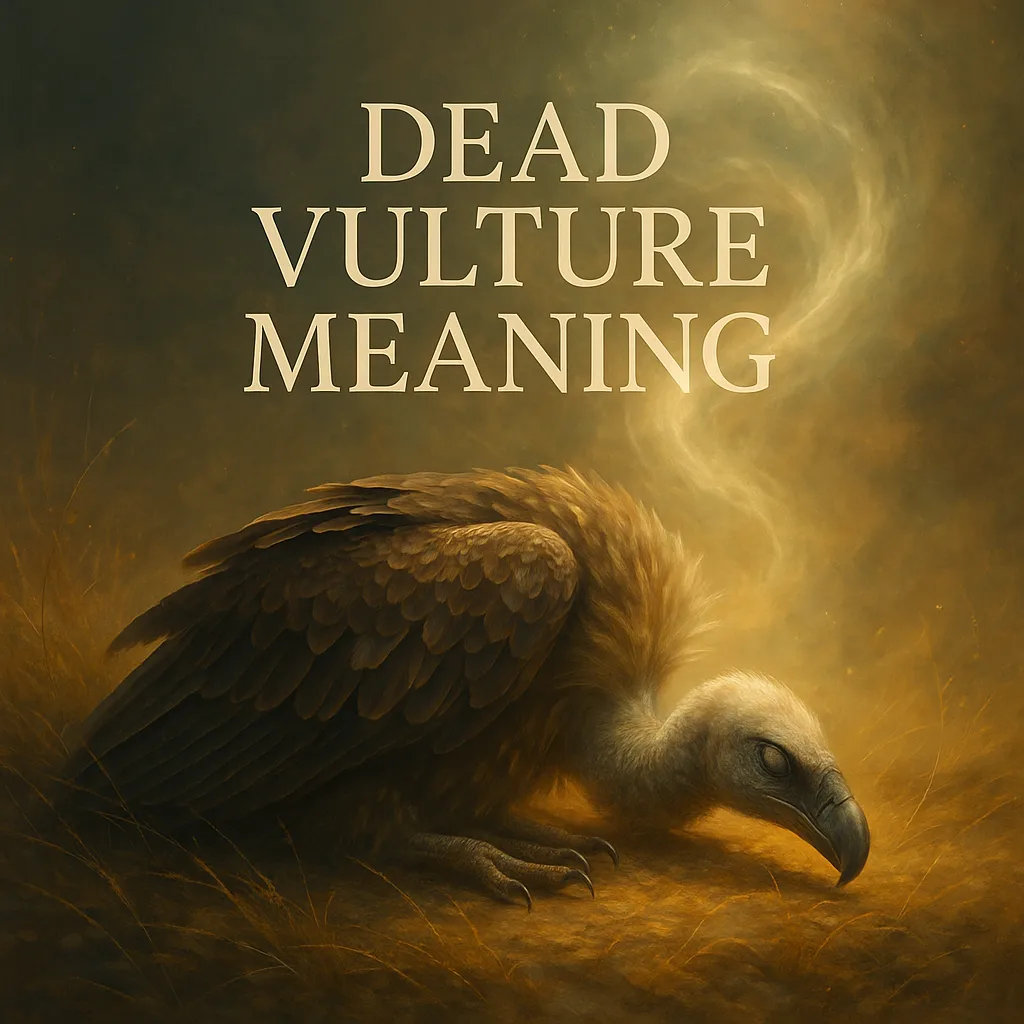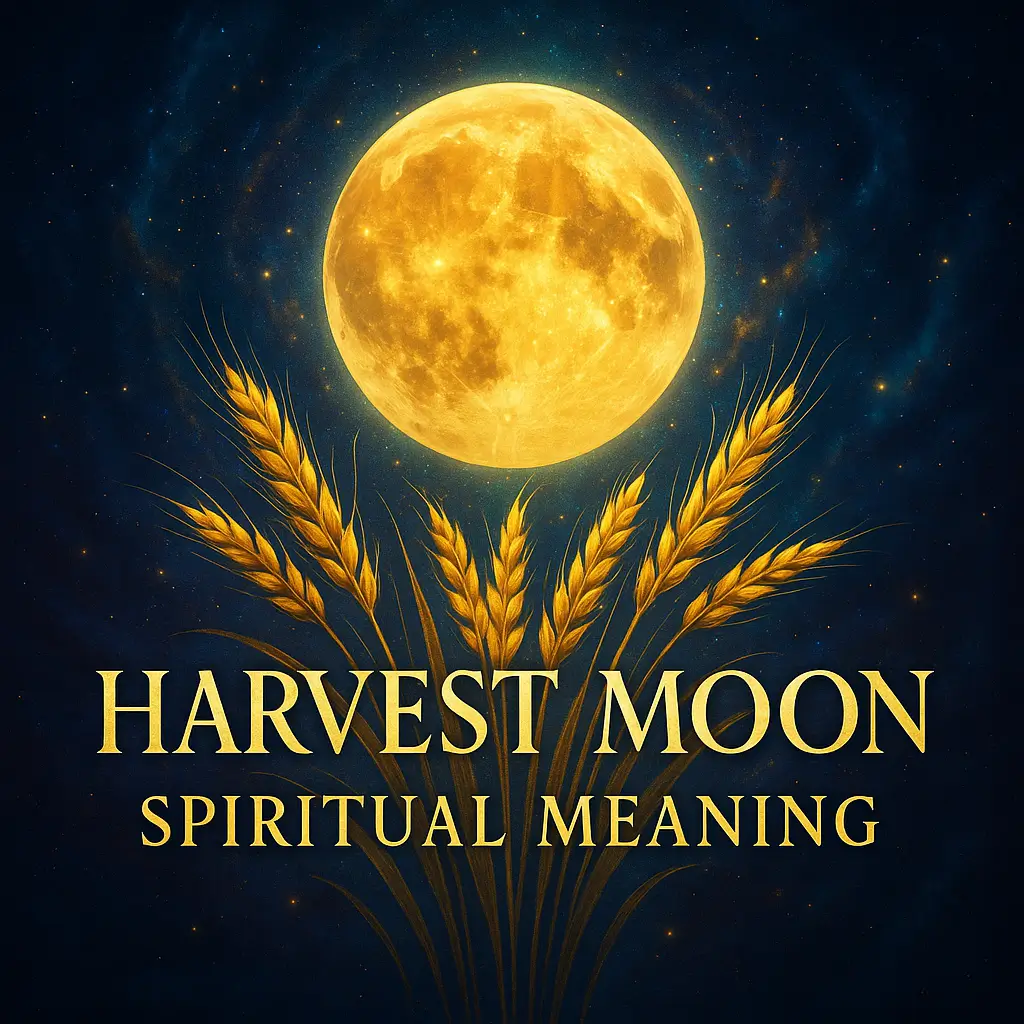When we encounter death in nature, particularly of a creature as misunderstood as the vulture, we’re invited into a moment of spiritual contemplation that transcends ordinary experience. Finding a dead vulture can stir complex emotions—unease, curiosity, or even reverence. These magnificent birds exist at the boundary between life and death, serving as nature’s purifiers while simultaneously carrying profound spiritual significance across diverse traditions.
From Ancient Egyptian tombs to Tibetan sky burial rituals, vultures have been recognized as messengers between worlds, transformers of energy, and symbols of necessary endings. Rather than mere harbingers of doom, dead vultures offer us multidimensional spiritual messages about transition, cleansing, and the cyclical nature of existence. By exploring what these enigmatic creatures might be communicating from beyond the physical realm, we open ourselves to deeper wisdom about life’s most transformative passages.
Table of Contents
- 1 Key Takeaways
- 2 The Vulture’s Sacred Role in Life and Death
- 3 Dead Vulture Symbolism Across Cultures
- 4 Spiritual Messages When You Find a Dead Vulture
- 5 The Ecological Crisis and Spiritual Significance
- 6 Dreams About Dead Vultures
- 7 Practical Spiritual Responses to a Dead Vulture Encounter
- 8 Distinguishing Natural Death vs. Spiritual Signs
- 9 Common Misconceptions About Dead Vultures
- 10 Vulture Wisdom in Modern Spiritual Practice
- 11 The Vulture’s Gift of Transformation
- 12 FAQ
- 13 Sources
Key Takeaways
- A dead vulture often symbolizes the completion of cycles and the necessity of releasing what no longer serves your spiritual growth.
- Across traditions from Ancient Egypt to Tibet, vultures represent spiritual transformation rather than simply death or misfortune.
- Finding a dead vulture can be an invitation to engage in shadow work—confronting and integrating difficult emotions or experiences you’ve been avoiding.
- The vulture’s ecological role as a purifier parallels its spiritual symbolism as a cleanser of energy and facilitator of necessary transitions.
- Honoring a dead vulture encounter through meditation or ritual can help you access its wisdom about rebirth and renewal.
The Vulture’s Sacred Role in Life and Death
Vultures occupy a unique ecological and spiritual position as transformers of death into continued life. These remarkable birds consume what others cannot, converting decay into vital energy and preventing the spread of disease. Their ability to digest carrion without becoming ill themselves represents a powerful metaphor for spiritual resilience—the capacity to process difficult experiences without being corrupted by them.
In the grand cycle of energy, vultures serve as essential connectors between death and rebirth. They don’t cause death; they honor its purpose by ensuring nothing is wasted. This ecological function has inspired spiritual traditions worldwide to view vultures not as sinister omens but as sacred facilitators of transformation.
Many traditions recognize vultures as psychopomps—beings that guide souls between realms. The vulture’s comfort with death makes it an ideal spiritual escort for transitions, helping souls navigate the journey from physical existence to spiritual realms. When we find a dead vulture, we’re witnessing the pause in this eternal mediation—a moment when the guide itself has undergone transformation.
Dead Vulture Symbolism Across Cultures
Ancient Egyptian Symbolism
In Ancient Egypt, the vulture embodied divine feminine protection through Nekhbet, the vulture goddess who watched over Upper Egypt and its pharaohs. Her widespread wings appearing on temple ceilings symbolized celestial guardianship. When a vulture died, Egyptians believed it represented a momentary gap in divine protection that would soon be filled as the goddess took a new form.
Egyptian mothers often wore amulets depicting vultures to invoke Nekhbet’s protective energy for their children. The vulture’s natural maternal instincts—fiercely protecting their young—reinforced this association. In hieroglyphic writing, the vulture symbol represented motherhood and sovereign protection.
Vultures also featured prominently in purification rituals, where their association with transformation helped Egyptians conceptualize the journey through death. The bird’s role in recycling death back into life aligned perfectly with Egyptian beliefs about rebirth and eternal cycles.
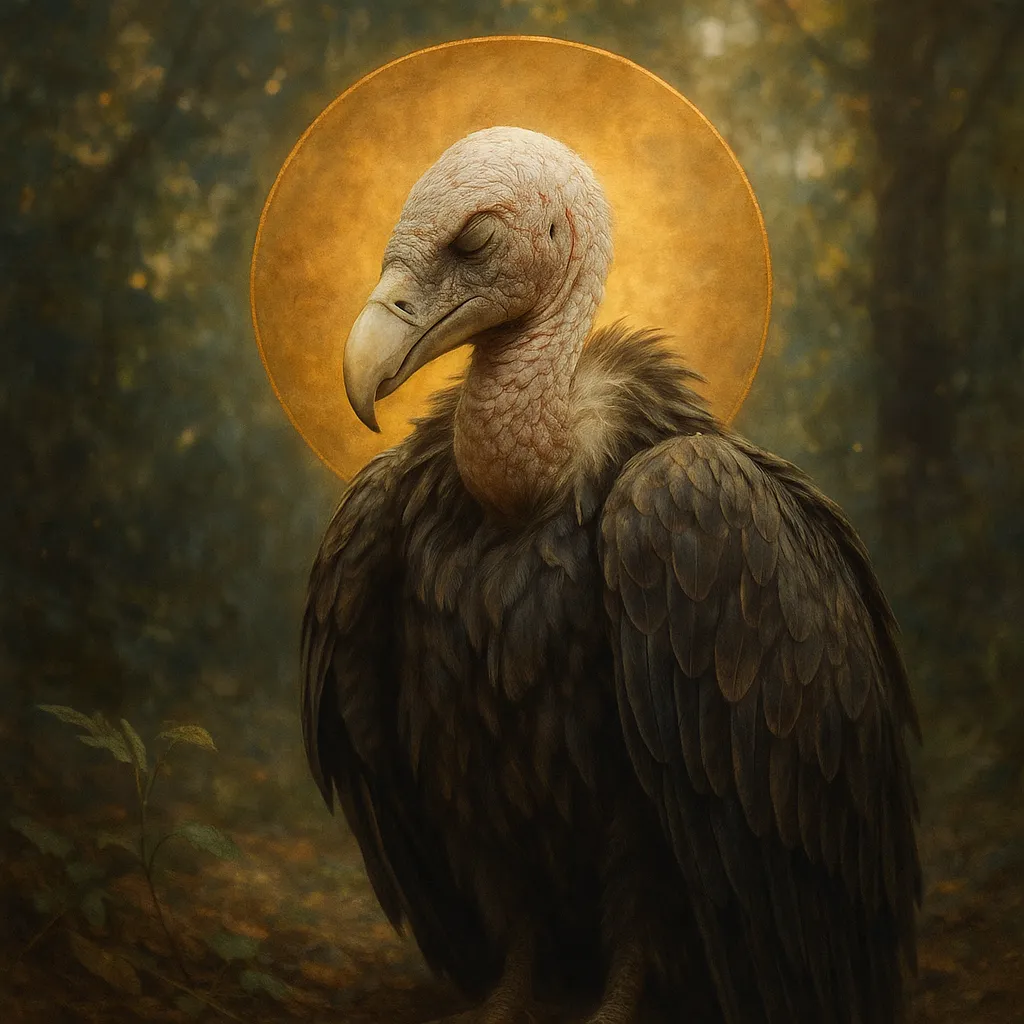
Tibetan Buddhist Traditions
Perhaps nowhere is the vulture more revered than in Tibetan Buddhism, where the sky burial practice offers human remains to these birds as a final act of generosity. This tradition views vultures as Dakinis—female embodiments of enlightened energy who help transport consciousness beyond physical limitations. When a vulture dies, Tibetans may interpret this as a Dakini completing her earthly mission.
The Bardo Thödol (Tibetan Book of the Dead) describes consciousness moving through intermediate states between death and rebirth. Vultures symbolize the liberation of consciousness from physical constraints. A dead vulture might therefore represent the completion of a spiritual transmission—the message has been delivered, and transformation is underway.
Tibetan practitioners often meditate on impermanence using vulture imagery, recognizing that everything—even the guides themselves—must eventually transition. The dead vulture becomes a powerful reminder of this universal truth.
Indigenous American Perspectives
Among various Indigenous North American nations, vultures hold complex spiritual significance. Pueblo traditions incorporate vulture feathers in ceremonies focused on spiritual transformation and shape-shifting. These rituals honor the vulture’s ability to transmute death into life force.
For Navajo practitioners, finding a dead vulture often signals an imbalance requiring ceremonial attention. Rather than fearing this sign, traditional healers might perform specific rituals to restore harmony between worlds. The vulture’s death becomes a call to action—a reminder to address spiritual disharmony.
Many Indigenous stories portray vultures as keepers of ancient wisdom about cycles of existence. Their death might signify that certain knowledge is ready to be released to those prepared to receive it, particularly teachings about necessary endings and new beginnings.
Hindu and Zoroastrian Traditions
In classical Hindu texts like the Yoga Vasistha, vultures symbolize time’s dual nature—destructive yet ultimately renewing. The vulture’s consumption of carrion represents how time devours all experiences, leaving only spiritual essence. A dead vulture might therefore symbolize a pause in time’s flow, a moment to reflect on eternal versus temporary aspects of existence.
The Zoroastrian Towers of Silence practice has relied on vultures for thousands of years to purify bodies after death. The recent catastrophic decline in vulture populations has profoundly disrupted this ancient tradition, forcing adaptation of spiritual practices. This ecological crisis carries its own spiritual message about humanity’s responsibility toward other beings whose existence supports our sacred traditions.
Some Hindu practitioners see connections between vultures and certain forms of Kali, the goddess who destroys to create anew. Both embody the necessary destructive aspect of creation, reminding us that endings precede beginnings in life’s eternal cycle.
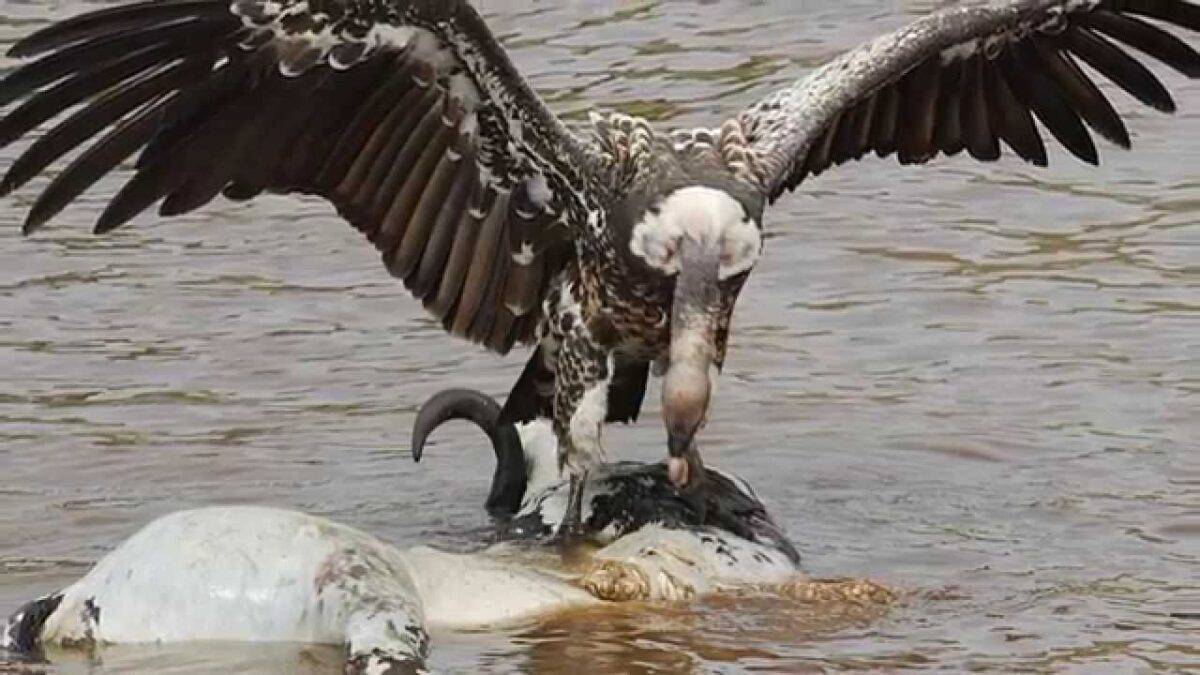
Spiritual Messages When You Find a Dead Vulture
Completion of Cycles
When you encounter a dead vulture, consider what cycles in your life are ready for completion. Vultures naturally mark the end of life cycles in nature; their own passing often signifies the closing of significant chapters. This might manifest as relationships that have fulfilled their purpose, beliefs that no longer serve your growth, or projects that have reached their natural conclusion.
The vulture’s death invites you to release attachment to outdated patterns with gratitude for what they’ve taught you. Just as the vulture transforms death into life energy, you can transform completed experiences into wisdom that fuels your next evolution. Consider what needs to be fully released before new growth can emerge in your spiritual journey.
This symbolism resonates with the concept of karmic completion—the idea that certain soul lessons reach resolution, allowing evolutionary movement. The vulture totem teaches that endings aren’t failures but necessary transitions toward greater alignment.
Invitation to Shadow Work
Jungian psychology views vultures as symbols of our capacity to process what others avoid. Finding a dead vulture may signal it’s time to engage with your shadow aspects—those parts of yourself you’ve rejected, repressed, or denied. Without this internal “vulture energy” to process difficult emotions, psychological toxicity can build.
This invitation might arrive when you’ve been avoiding grief, anger, or fear. The vulture’s death symbolizes the risk of neglecting psychological processing—when we refuse to face our shadows, we lose access to the transformation these confrontations offer. Consider what emotions or memories you’ve been avoiding that now need acknowledgment.
Shadow work inspired by vulture symbolism isn’t about dwelling in darkness but transforming it into wisdom—just as vultures convert death into life energy. This integration process leads to greater wholeness and authentic spiritual growth.
Warning of Imbalance
In ecological systems, vulture deaths often indicate environmental disruption. Similarly, on a spiritual level, a dead vulture may signal imbalances in how you’re processing life experiences. Are you taking on others’ emotional burdens without proper boundaries? Have you been functioning as a “spiritual vulture” for your community without replenishing your own energy?
This warning might appear during times of overextension or when you’ve neglected self-care while supporting others. The message isn’t to stop your service but to ensure sustainable practices that honor your own well-being alongside others’.
Consider also whether you’re maintaining balance between confronting life’s difficulties and celebrating its joys. The vulture teaches that while processing shadow aspects is necessary, it must be balanced with light to maintain spiritual health.
Transformation and Rebirth
Perhaps the most profound message a dead vulture offers is the promise of renewal through surrender. The vulture itself has completed its transformative mission and undergone its own transformation. This symbolism points to profound personal metamorphosis available when we fully release what has expired in our lives.
This message often appears during major life transitions—career changes, relationship endings, spiritual awakenings, or recovery from illness. The vulture’s death reminds us that transformation isn’t always comfortable but leads to necessary rebirth.
Many spiritual traditions echo this vulture wisdom in teachings about dying to the old self before rebirth can occur. The vulture’s life embodied this principle, and its death completes the demonstration, offering you courage to embrace your own transformative passages.
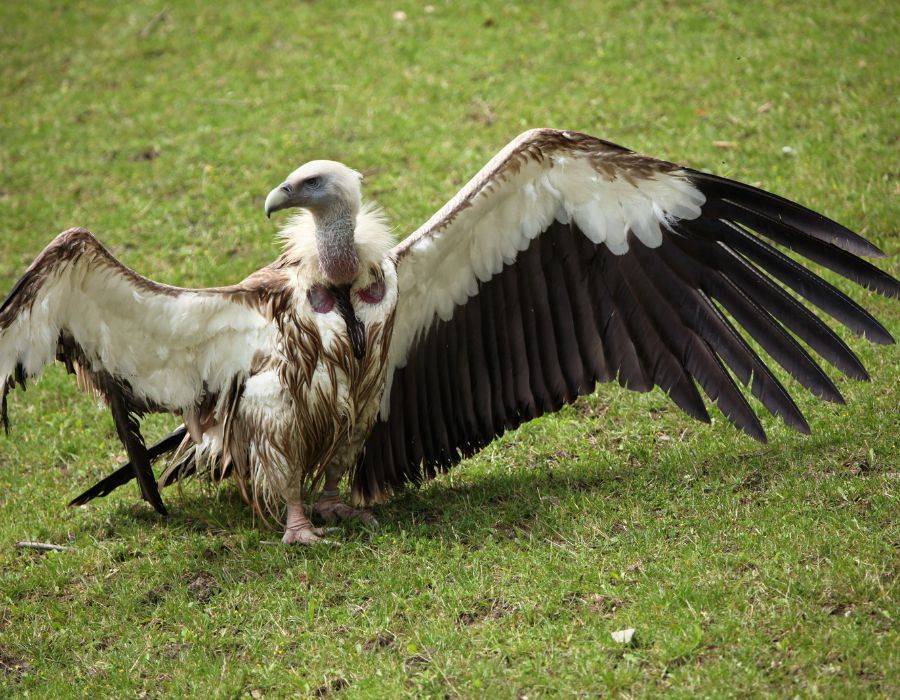
The Ecological Crisis and Spiritual Significance
The catastrophic decline of vulture populations worldwide carries profound spiritual symbolism alongside its ecological impact. In India, vulture numbers have plummeted by over 95% since the 1990s due to diclofenac poisoning, creating both environmental and spiritual disruptions. This crisis has forced Parsi communities to adapt their ancient Towers of Silence practice, which relied on vultures to purify bodies after death.
This ecological tragedy offers a spiritual lesson about interconnection and unintended consequences. What seems like an isolated action—using medication for cattle—rippled through entire ecosystems and spiritual traditions. The vulture crisis reminds us that our choices affect realms beyond our immediate perception, including spiritual dimensions.
From a spiritual perspective, the vulture’s decline represents the risk of losing crucial transformative forces in our world. Without beings that transform death into new life, both ecological and spiritual cycles become disrupted. Conservation efforts become not just environmental activism but spiritual duty—preserving the sacred processes that maintain balance between worlds.
This situation also symbolizes the necessity of adaptation in spiritual practice. As Zoroastrian communities develop solar concentrators to replace vultures’ purification role, we see how tradition can honor its essence while evolving its form. The vulture teaches that even sacred methods must sometimes transform to preserve eternal principles.
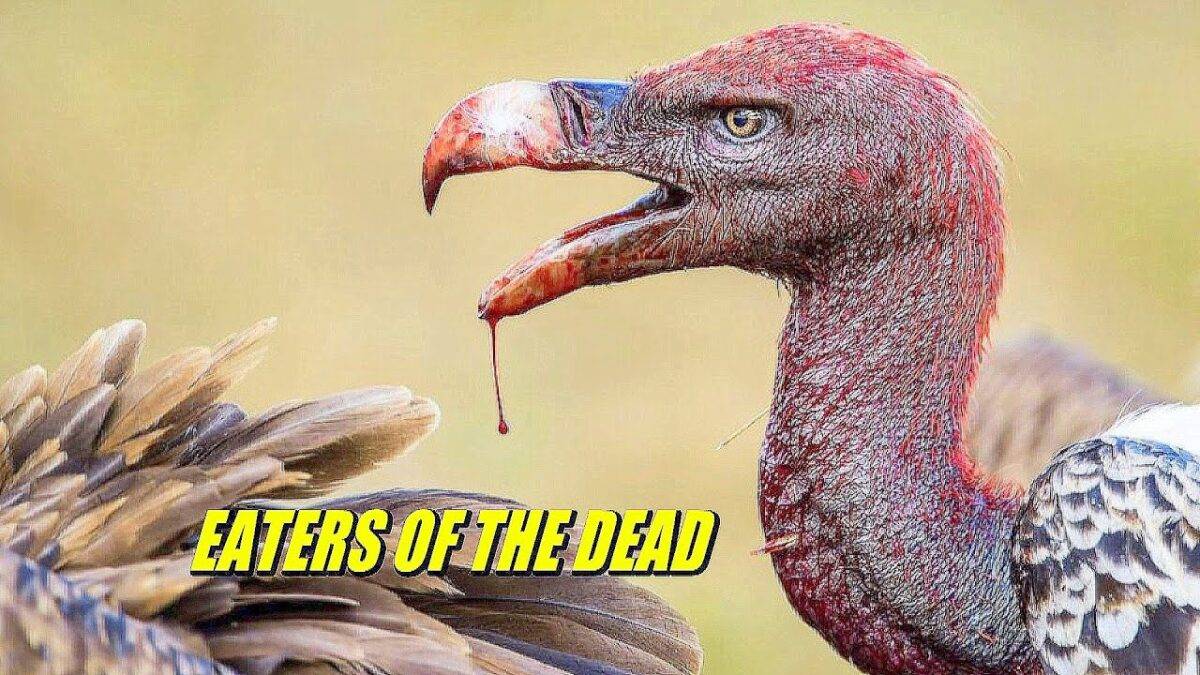
Dreams About Dead Vultures
Common Dream Scenarios
Dreams featuring dead vultures often carry significant spiritual messages tailored to your personal journey. Finding a dead vulture in your dream path suggests you’re being called to acknowledge something you’ve been avoiding—a necessary ending or uncomfortable truth that requires your attention before you can progress.
Witnessing vultures dying in flight frequently symbolizes interrupted transformation processes in your life. This might reflect spiritual work begun but not completed, or transformation interrupted by fear or external circumstances. The dream invites you to identify what’s blocking your growth process.
Dreams where you transform into or from a vulture indicate initiation into deeper understanding of life’s recycling processes. These powerful dreams often mark spiritual evolution in your relationship with mortality, endings, and necessary releases. Such dreams may come during major life transitions or spiritual awakening periods.
Dream Interpretation Framework
To understand your dead vulture dream, first note your emotional response—fear, peace, sadness, or curiosity. These feelings provide important clues about how you’re relating to themes of transformation in your waking life. Did you feel resistance or acceptance toward the vulture’s death?
Consider what else appeared in the dream landscape. Was the setting natural or artificial? Were other animals or people present? These elements contextualize the vulture symbolism within your specific life circumstances and spiritual journey.
Connect the dream imagery to your current challenges. Are you struggling to let go of something? Are you in transition between life phases? The dead vulture often appears when subconscious wisdom recognizes the need for profound release before new growth can emerge.
Cultural Dream Interpretations
Ancient dream texts offer varied perspectives on vulture dreams. Egyptian dream interpreters saw dead vultures as temporary suspension of divine protection, while later traditions viewed such dreams as omens of cleared obstacles. These contrasting views remind us to consider cultural context alongside personal resonance.
Tibetan Buddhist dream yoga views all dream creatures as aspects of consciousness. A dead vulture might represent transformation of how you process difficult experiences—the death of old patterns making way for more enlightened responses.
Modern psychological approaches might interpret the dead vulture as representing the end of a psychological defense mechanism that once protected you but now limits your growth. The dream signals readiness to develop healthier ways of processing challenging emotions or experiences.
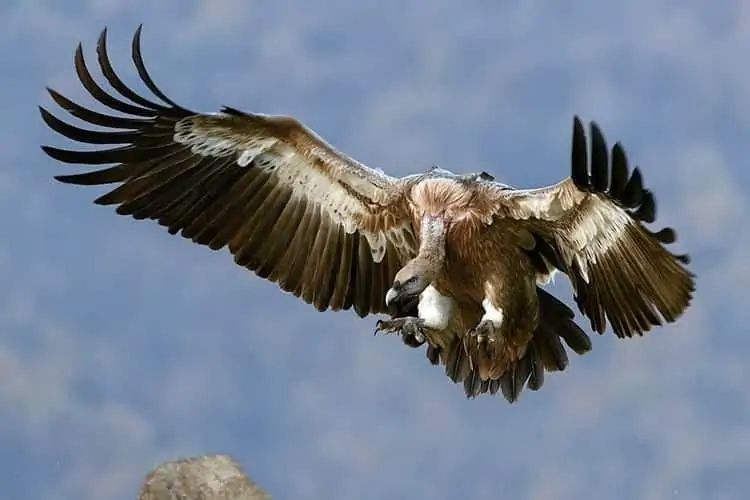
Practical Spiritual Responses to a Dead Vulture Encounter
Meditation Practices
The Sky Burial Visualization offers a powerful way to process a dead vulture encounter. Find a quiet space, close your eyes, and imagine your fears, regrets, or completed life chapters as a body offered to spiritual vultures. With each breath, envision these winged transformers carrying away what no longer serves you, transmuting it into wisdom. This practice honors the vulture’s spiritual role while facilitating your own release process.
For deeper shadow integration, try a focused meditation where you visualize sitting beside the dead vulture, asking what message it carries specifically for you. Allow images or feelings to arise without judgment. This receptive practice often reveals subconscious insights about necessary endings or transformations in your life.
After unsettling vulture encounters, grounding techniques help restore balance. Place your hands on the earth, imagining roots extending from your body into soil. Acknowledge the natural cycle the vulture represents—all returns to earth to be transformed. This practice connects your personal experience to universal patterns, providing comfort and perspective.
Rituals for Honoring the Message
Create a simple acknowledgment ceremony by lighting a candle for the vulture’s spirit and the cycle of transformation it represents. Speak aloud your gratitude for its message and your intention to honor its teaching about necessary release and renewal. This ritual recognition helps integrate the encounter’s spiritual significance.
Working with vulture symbolism might include creating artwork that explores themes of transformation, or writing a letter to something you’re ready to release from your life. Many find that physically burning this letter afterward (safely) helps concretize the letting-go process that vultures symbolize.
Consider a prayer or intention-setting practice focused on purification and renewal. You might adapt this traditional Tibetan offering: “As this vulture has completed its work of transformation, may I recognize what must be released in my life. May all beings benefit from this cycle of renewal.”
Conservation as Spiritual Practice
Supporting vulture conservation efforts represents a tangible response to their spiritual messages. Organizations like the Vulture Conservation Foundation offer opportunities to protect these sacred birds whose existence maintains both ecological and spiritual balance. This action honors the reciprocal relationship between humans and spiritual messengers.
Ecological stewardship becomes spiritual practice when we recognize the sacred role these misunderstood creatures play. Educating others about vultures’ importance challenges fear-based cultural narratives and helps preserve ancient wisdom about transformation these birds embody.
Consider how you might heal your relationship with aspects of nature you’ve misunderstood or feared. The vulture’s stigmatization parallels how we often reject parts of ourselves or spiritual truths that make us uncomfortable. Embracing the vulture’s wisdom includes embracing all aspects of natural cycles, including those that challenge us.
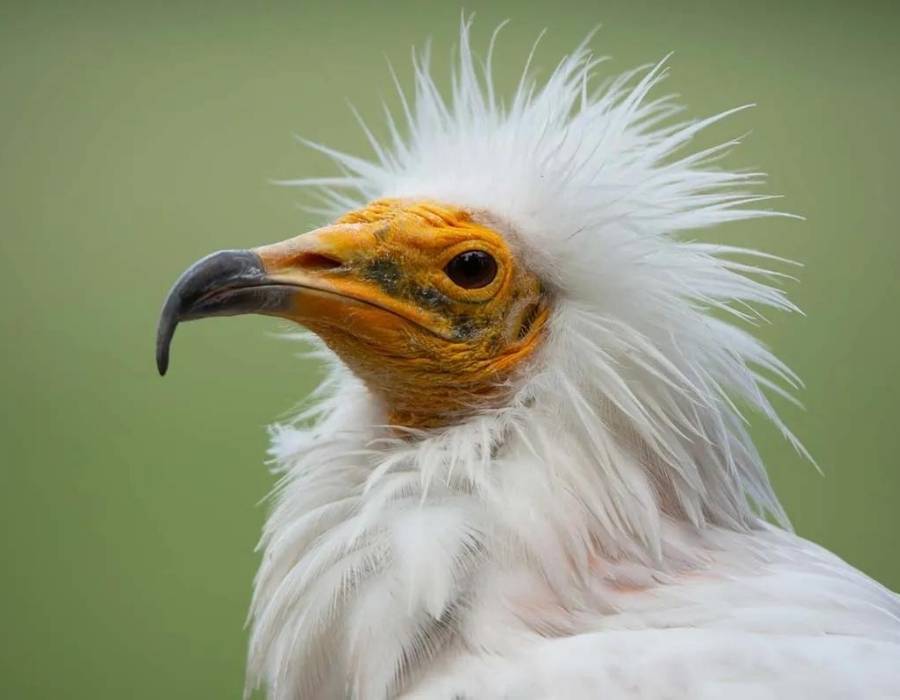
Distinguishing Natural Death vs. Spiritual Signs
Not every dead vulture carries personal spiritual significance, but certain contexts enhance symbolic meaning. When the encounter feels synchronistic—perhaps occurring on a significant date or alongside other meaningful events—it more likely carries directed spiritual message. Notice your intuitive response; a feeling of unusual emotional impact often indicates spiritual significance beyond the physical event.
Consider the location and circumstance. A vulture found on your property or regular path may hold more personal significance than one seen from a distance. The rare or unusual nature of the encounter also increases its potential as a spiritual sign. Most people rarely encounter dead vultures, making such experiences stand out as potentially meaningful.
Balance scientific understanding with spiritual insight by acknowledging both dimensions. A vulture may have died from environmental factors, yet simultaneously carry spiritual symbolism. These perspectives complement rather than contradict each other—just as we can understand rain through both meteorology and as a symbol of spiritual cleansing.
Honor the physical reality by reporting wildlife deaths to local authorities when appropriate (especially if multiple animals are affected, which might indicate environmental issues). This practical response can coexist with your exploration of the encounter’s metaphysical dimensions.
Common Misconceptions About Dead Vultures
“Dead Vultures Always Signal Bad Luck”
The misinterpretation of vultures as harbingers of misfortune stems largely from medieval European associations of scavengers with plague and war. This limited view overlooks the bird’s essential role in preventing disease spread—vultures actually reduce misfortune in natural systems. Their death represents transition rather than calamity.
Ancient Egyptian, Tibetan, and many Indigenous traditions offer more nuanced interpretations, viewing vultures as sacred purifiers and spiritual messengers. In these contexts, a dead vulture might signal the completion of a necessary cleansing process or transitional phase rather than impending disaster.
A holistic understanding recognizes that while vultures connect with death, their purpose serves life’s continuation. Their passing marks not catastrophe but transformation—an invitation to release fear-based interpretations and recognize the continuous recycling of energy that sustains all existence.
“Vultures Are Simply Death Eaters”
Reducing vultures to mere scavengers misses their profound role as energy transformers. In ecosystems, vultures don’t just consume death—they convert it into new life force, preventing disease spread and recycling nutrients. This physical function mirrors their spiritual symbolism across traditions as sacred alchemists transforming endings into beginnings.
Many traditions honor rather than fear this transformative capacity. The Tibetan sky burial practice recognizes vultures as liberators helping consciousness transition beyond physical form. Similarly, Zoroastrian towers of silence traditions view vultures as purifiers helping souls journey onward unencumbered.
This cleansing role extends to spiritual teachings about necessary endings. Just as vultures help complete physical death processes, their symbolism helps us understand how to properly conclude life chapters, relationships, or beliefs whose time has passed. Without this sacred function, both ecosystems and human experiences would become stagnant.
“Finding a Dead Vulture Means Death Is Coming”
This fear-based interpretation misunderstands the vulture’s relationship with transition. Rather than predicting physical death, a vulture’s passing more often symbolizes the end of a metaphorical death process—something has already been released or transformed. The vulture’s work is complete; renewal can now begin.
Alternate perspectives view vulture encounters as invitations to conscious transition rather than omens of doom. Many spiritual traditions use vulture symbolism to teach constructive approaches to life’s inevitable changes and endings. The message becomes not “fear what’s coming” but “embrace transformation with awareness.”
Working constructively with mortality awareness means recognizing that acknowledging life’s impermanence enhances our appreciation for each moment. The vulture teaches neither to fear death nor to dwell on it, but to understand its role in the greater cycle. This wisdom allows us to live more fully by accepting rather than resisting natural transitions.
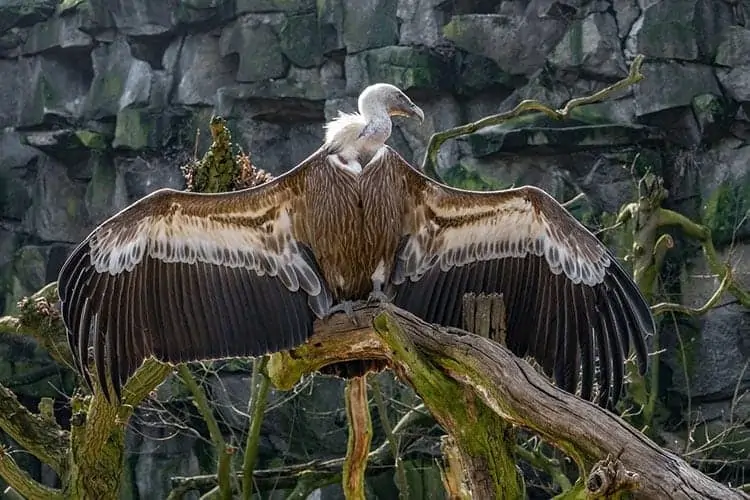
Vulture Wisdom in Modern Spiritual Practice
Contemporary spiritual teachers increasingly incorporate vulture symbolism in their work on transformation and shadow integration. Lama Tsultrim Allione’s practices for “feeding your demons” draw partly from Tibetan traditions where vultures represent the transformation of negative energies. This approach helps practitioners metabolize difficulties rather than avoiding them—embodying the vulture’s alchemical wisdom.
Eco-spirituality movements recognize vultures as powerful symbols of nature’s recycling processes. By honoring the vulture’s role in ecosystems, these approaches help practitioners develop more integrated relationships with natural cycles, including death and renewal. This perspective sees vulture conservation as both ecological necessity and spiritual responsibility.
Creating a personal relationship with vulture medicine might involve researching which vulture species inhabit your region and learning about their specific behaviors and challenges. This knowledge builds connection with these misunderstood beings while providing concrete ways to support their continued existence.
Daily practices for honoring vulture teachings include regular release rituals for outdated thoughts, relationships, or possessions; meditation on impermanence; and conscious composting as spiritual practice. These approaches integrate the vulture’s transformative wisdom into everyday life, helping us move through transitions with greater grace and understanding.
The Vulture’s Gift of Transformation
The dead vulture offers us multidimensional wisdom about life’s necessary transitions. Across cultures and spiritual traditions, this misunderstood creature reveals that endings are not failures but essential components of larger cycles. Whether through Ancient Egyptian protection symbolism, Tibetan soul liberation practices, or modern ecological understanding, the vulture teaches us to recognize death as doorway rather than destination.
When we encounter a dead vulture, we’re invited to consider what in our lives requires release and transformation. This might be relationship patterns, limiting beliefs, outdated identities, or completed life chapters. The vulture’s message reminds us that holding on past natural completion points blocks the emergence of new growth and possibilities.
Embracing vulture wisdom enhances spiritual resilience by teaching us to process rather than avoid life’s difficulties. Just as the vulture transforms decay into vital energy, we can learn to metabolize challenging experiences into wisdom and strength. This alchemical capacity represents spiritual maturity—the ability to find value in all life experiences, including endings.
By honoring both the physical vulture and its spiritual symbolism, we participate in an ancient conversation between humanity and these winged transformers. We recognize that in the great cycle of existence, nothing truly ends—it merely changes form. The vulture’s final gift is this profound understanding: through accepting necessary endings, we open ourselves to perpetual renewal.
FAQ
What does it mean spiritually to see a dead vulture?
Seeing a dead vulture often symbolizes the completion of a transformation process in your life. It may indicate that a period of necessary spiritual cleansing has concluded, making room for new beginnings. This sighting invites reflection on what you’re ready to release and what new energy can now enter your life.
Is finding a dead vulture a bad omen?
Rather than a bad omen, finding a dead vulture typically represents transition and the completion of cycles. While Western traditions sometimes misinterpreted these birds negatively, many ancient cultures viewed vultures as sacred transformers. The sighting invites you to consider what necessary changes are occurring rather than fearing misfortune.
What does a vulture symbolize in spirituality?
In spirituality, vultures symbolize purification, transformation, and the sacred recycling of energy. They represent the ability to find value in what others reject and to transmute difficult experiences into wisdom. Vultures teach patience, perception beyond surface appearances, and the courage to engage with life’s necessary endings.
